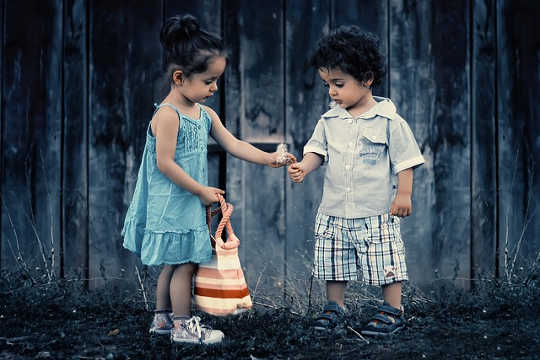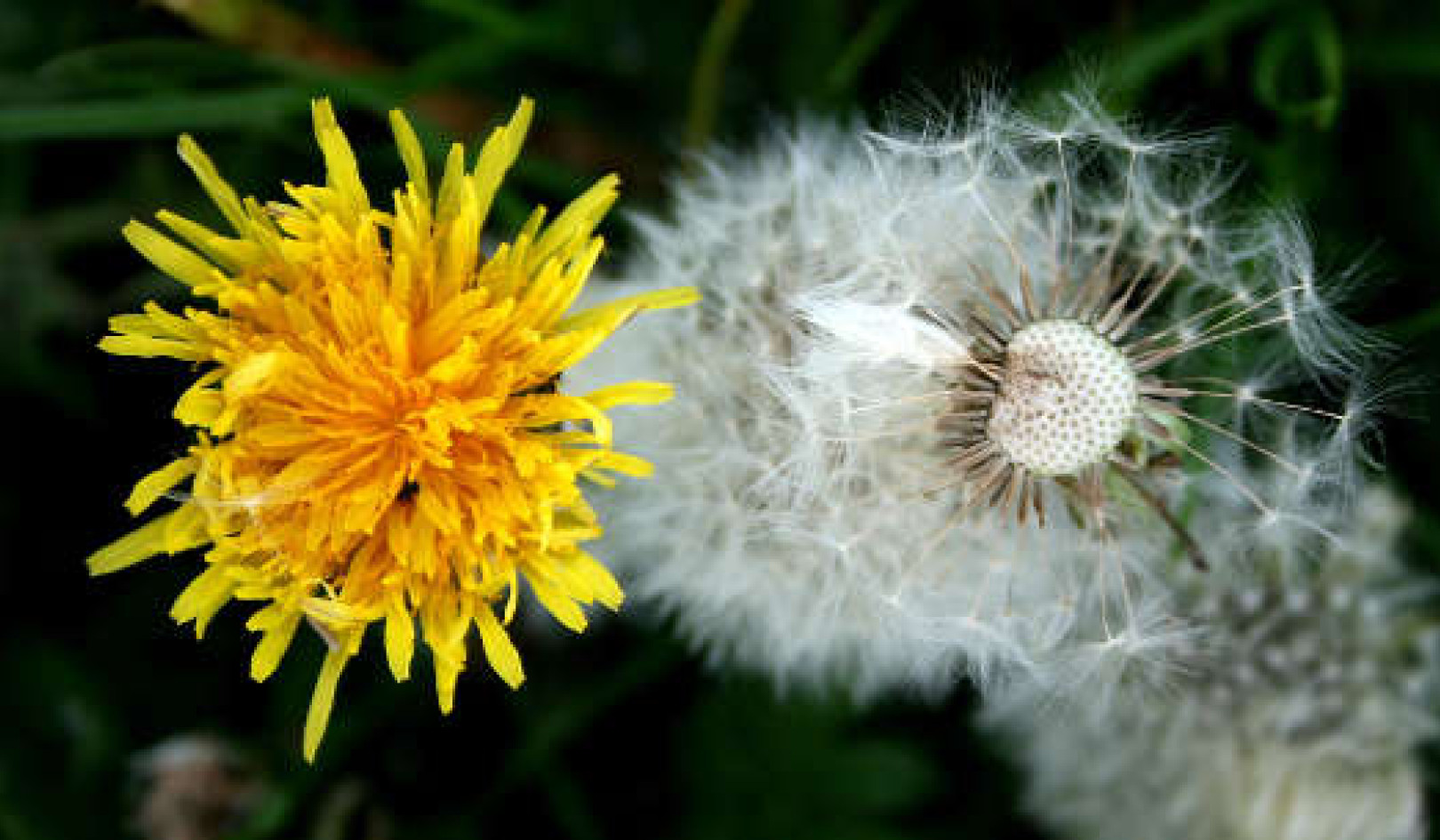
Happiness can exist only in acceptance.
— George Orwell
"I like you, do you like me?" Isn't that how children approach one another, with total openness and acceptance? They have this pure, innocent way of expressing themselves, and have a completely disarming attitude like, "Hey, I want you to be my friend."
Kids don't even make each other earn it. They make up their minds pretty quickly that they like you, and before you know it, they've put their arm around you and declared you their best friend. It doesn't matter what color skin you have, your religion, or if you don't identify as any particular gender.
Children don't pick you as their friend based on any of that. They like you because it's natural for them to, until they've been brainwashed to hate, and everything changes after that.
Non-Acceptance Is A Choice We've Learned
I remember when I was twelve years old, and at my best friend's house having dinner with her family. I sat there and wondered why they seemed cold and unfriendly. I sensed that something wasn't right, but I wasn't sure what it was. A few days later, I was on the phone with her making plans to get together again, and her brother came on the phone. He asked me if I knew what a "wej" was, and I said no. He laughed, and said, "That's a Jew spelled backwards." That's what I was, a "wej." He laughed again and started to make fun of me by repeating over and over again, "Ora is a wej, Ora is a wej".
I felt my heart sink, as if someone had knocked the wind out of me. It was my first experience with anti-Semitism, and it was the most hurtful thing I had ever felt. From that moment onward, I knew I was different than my best friend and her family, who were Roman Catholic, and that I wasn't accepted by them, even though she and I loved each other because that's all we knew, and that's what felt most true to us—we were being authentic to what was true in our hearts. The knowledge of her family's non-acceptance of me was devastating, but it taught me the biggest lesson of my life, that prejudice exists, and it's closer to home than we can imagine.
We are not born to hate. We're not hard wired like that. We learn how to hate, and not to accept someone based on their religion, sex, gender, color of skin, or anything that marks us as different from one another.
As quickly as a child decides to like someone, we, as adults, are as quick not to accept anyone who is different than us, and it takes us less than a minute to dismiss or reject someone who we view as inferior because they don't look, think or act like we do.
It's okay if you feel that someone isn't your cup of tea, but that doesn't mean you have to view them as a threat or an enemy, which some people do with anyone who's different than them. They just can't find a place to file them away in their mind, so it's easier to put them in the dislike or hate category.
If it's our differences that threaten us, then it's acceptance that can dissipate the power of dissimilarity.
What is unfamiliar to us can seem threatening, but if we can approach one another with an openness to get to know who we are in spite of our differences, and take a genuine interest in discovering what it is that makes us unique, then acceptance becomes a genuine power, and those that can practice it become the empowered.
He Who Accepts Love In His Heart Is Truly Powerful
There are people like Martin Luther King, Jr. who refused to give into the belief that hatred was more powerful than love, and devoted their life to dispelling it. "I refuse to accept the view," he famously said, "that mankind is so tragically bound to the starless midnight of racism and war that the bright daybreak of peace and brotherhood can never become a reality... I believe that unarmed truth and unconditional love will have the final word."
Refusing to accept the view that "mankind is so tragically bound to the starless midnight of racism and war" is standing up to intolerance, because it's not letting the limitations of those who are not connected to their wholeness, speak for all of humanity, and certainly not the humanity we hold in our own hearts, which is not bound by hatred, and does feel acceptance towards others.
We have to be able to say, "enough" when it comes to hatred, and the only way to do that is by not letting it become our reality, but instead, always steering hatred towards "unconditional love" and know, as Martin Luther King said, "it will have the final word."
Returning To Our Conscious Homeland
As I said in Chapter 16 (Behavior), "Think of other ways you can change how you act or conduct yourself towards others. Set your intentions in the morning to go out in your day and be truly caring and mindful, and even if someone is not treating you in the same way, don't take their tone, or mimic their thoughtlessness, but instead go more out of your way to be kind. This is the raise your consciousness challenge."
Acceptance raises the consciousness bar high, and when we bring others into our hearts, even if they seem unfamiliar or foreign to us, we are functioning from our higher self; our spiritual being, and we know that oneness is the ultimate "unarmed truth:'
We are one, but we have split apart into billions of people all over the world, and by each and every one of us holding love in our hearts, and living with acceptance of all people that walk this earth with us, no matter their skin color, religion, gender, or any differences we may have, we will find our way back to the land of oneness that I've spoke about, and realize that it's right here where we are.
But we've moved far away from it. We have forgotten this truth in our slumber of unconsciousness, and must awaken to it so that we can return to our conscious homeland. But we must realize that we have not seen clearly for a very long time; that our perception has been distorted, and must now see through a lens of acceptance of one another.
Seeing Through The Lens of Love and Acceptance
Mindfulness will help us return to our conscious homeland. It reminds us that we are here in this moment of "now" and that there is no other moment than this one, and all that this moment asks us to do is to feel love and acceptance in our hearts; towards ourselves, and others.
That's what all the moments of our lives ask of us. Is that so very hard? Is that not possible for us to do? Ask yourself how you inhabit your moments. Are you awake and aware, and able to see the beauty in your fellow man, or do you perceive them with judgment and hate? Take off those distorted glasses, and see through eyes of "unarmed truth."
There is no clearer vision you will have than seeing through the lens of love and acceptance, and what you will see will open your heart so wide, you will know that this is the truest vision of all, and never want to cover your eyes, or turn away from love again.
Meditation for Acceptance
1. Sit somewhere quiet
2. Close your eyes.
3. Be aware of any sounds, thoughts, feelings, or sensations you may be experiencing in your body. Simply observe them.
4. Put your focus and awareness on your breath.
5. Take a few deep breaths in and out.
6. If at any time your mind begins to wander, simply bring your awareness back to your breath.
7. Say silently, "I accept myself."
8. Say silently, "I accept all beings."
9. Say silently, "May love and acceptance always guide me."
10. When you're ready, bring your focus and awareness back to your body sitting in meditation.
11. Slowly open your eyes.
12. At your own pace, transition out of the meditation.
Note to self:
I accept myself
I accept others
Acceptance is my truth
©2019 by Ora Nadrich. All Rights Reserved.
Article Source
Live True: A Mindfulness Guide to Authenticity
by Ora Nadrich.
 Fake news and "alternative facts" permeate our modern culture, causing ever more confusion to what is real and true. Authenticity is more important than ever as a prescription for peace, happiness and fulfillment. Live True fills that prescription. Written in a down-to-earth, supportive voice, Ora's Live True offers the modern approach to Buddhist teachings of awareness and compassion; making them instantly accessible and adaptable to everyday life and everyday people. The book is expertly divided into four sections - Time, Understanding, Living, and ultimately, Realization -- to take the reader through the necessary stages of understanding how to connect to our authentic selves and experience the joy and peace - the ever-present wholeness - that comes from living Mindfully.
Fake news and "alternative facts" permeate our modern culture, causing ever more confusion to what is real and true. Authenticity is more important than ever as a prescription for peace, happiness and fulfillment. Live True fills that prescription. Written in a down-to-earth, supportive voice, Ora's Live True offers the modern approach to Buddhist teachings of awareness and compassion; making them instantly accessible and adaptable to everyday life and everyday people. The book is expertly divided into four sections - Time, Understanding, Living, and ultimately, Realization -- to take the reader through the necessary stages of understanding how to connect to our authentic selves and experience the joy and peace - the ever-present wholeness - that comes from living Mindfully.
Click here for more info and/or to order this book.
About the Author
 Ora Nadrich is a Mindfulness, Meditation, and Transformational teacher. She is the founder & president of The Institute For Transformational Thinking, and author of Says Who? How One Simple Question Can Change the Way You Think Forever. Ora's two decades of training and practice as both a Life Coach and certified Mindfulness meditation instructor has helped thousands of people overcome the blocks and hindrances caused by limited and negative thinking, enabling them to live as their most real, authentic selves. Learn more at www.OraNadrich.com
Ora Nadrich is a Mindfulness, Meditation, and Transformational teacher. She is the founder & president of The Institute For Transformational Thinking, and author of Says Who? How One Simple Question Can Change the Way You Think Forever. Ora's two decades of training and practice as both a Life Coach and certified Mindfulness meditation instructor has helped thousands of people overcome the blocks and hindrances caused by limited and negative thinking, enabling them to live as their most real, authentic selves. Learn more at www.OraNadrich.com
Related Books
at

Thanks for visiting InnerSelf.com, where there are 20,000+ life-altering articles promoting "New Attitudes and New Possibilities." All articles are translated into 30+ languages. Subscribe to InnerSelf Magazine, published weekly, and Marie T Russell's Daily Inspiration. InnerSelf Magazine has been published since 1985.

Thanks for visiting InnerSelf.com, where there are 20,000+ life-altering articles promoting "New Attitudes and New Possibilities." All articles are translated into 30+ languages. Subscribe to InnerSelf Magazine, published weekly, and Marie T Russell's Daily Inspiration. InnerSelf Magazine has been published since 1985.


























